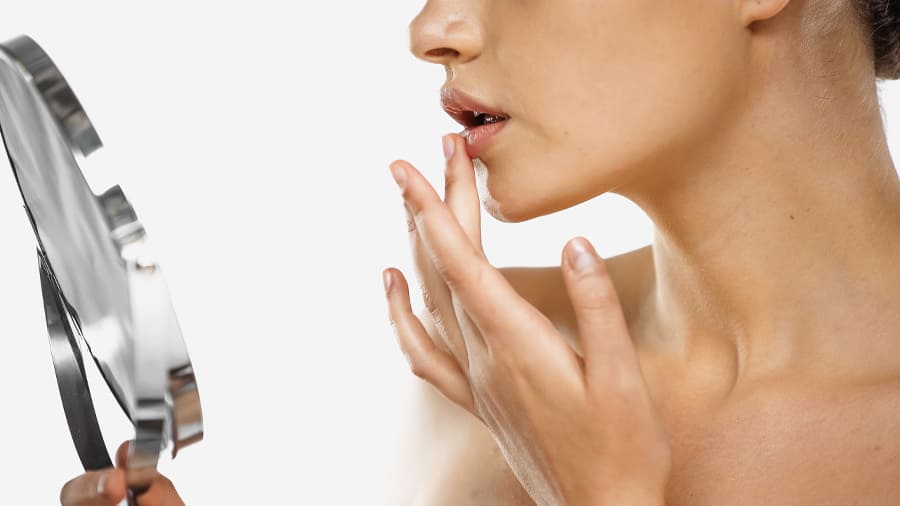What Causes Dry Lips?
An article in the Economic Times explains that the skin on our lips is quite thin and that is why it is easier for them to become dry and chapped. .
Common causes of dry lips include:
- Dry weather conditions
- An allergic reaction to a substance that's come in contact with the lips (such as lipstick)
- Trauma to the lips (including chewing on them)
- Frequently licking the lips
- Vitamin or other nutritional deficiencies
While most people develop dry lips from these everyday circumstances, the cause could also be certain types of medicine or even a chronic illness. Medications that can cause dry mouth may also dry out the lips - leading to cracked, chapped lips. Dry lips, mouth sores, skin rashes, and sun sensitivity are also be associated with lupus, a rare autoimmune disorder.
Dry Lips and Cheilitis
Dry lips are related to cheilitis, the cracking of the corners of the mouth. International Journal of Health and Allied Sciences notes that cheilitis presents as scaling on the lips often extending onto the perioral skin. Often seen during winter in childhood. It appears as dry scaly lips, often attributed to frequent licking to hydrate the dryness, named as lip-lick cheilitis.
Sun exposure can lead to a specific type of dry, chapped lips known as actinic cheilitis and chronic actinic cheilitis develops after prolonged sun exposure or UV radiation exposure.
Excessive moisture at the corners of the mouth can cause angular cheilitis. Once the saliva disappears, dry patches form at the corners of the lips - allowing bacteria to infect the cracked skin. Thumb-sucking and wearing poor-fitting dentures can increase your chances of developing angular cheilitis.
Dry Lips Treatment
Although dry or chapped lips can be a pain to deal with, there are multiple ways you can find relief and prevent dryness in the future. If you have chapped lips, a lip balm may help hydrate them. An article in the Economic Times suggests that you can apply any petroleum jelly available in the market to give your lips a healthy plump.
It's also a good idea to take extra steps to protect your lips from the cold air, sun, and wind during winter. You should apply a lip balm that has an SPF of at least 15 before venturing outdoors. If it's especially windy out, cover your lips with a scarf to protect them from the drying effects of the wind. Drinking plenty of fluids will help you maintain healthy, hydrated lips, no matter the time of year.
If the air in your home gets dry, a humidifier can add moisture to the air and reduce the chance of chapped lips. You'll also want to avoid licking your lips as much as possible. Although licking the lips may seem like a way to instantly moisturise them, it's actually very drying. Once the saliva evaporates from the surface of the lips, it leaves them drier than before. Saliva also irritates the lips, making your symptoms worse.
If lip balm, avoiding the sun and wind, and other attempts to hydrate your lips don't seem to help, it's a good idea to ask your dermatologist or doctor about your chronic dry lips. Your doctor can evaluate any chronic conditions that might be drying out your lips and help you find a path to relief.
This article is intended to promote understanding of and knowledge about general oral health topics. It is not intended to be a substitute for professional advice, diagnosis or treatment. Always seek the advice of your dentist or other qualified healthcare provider with any questions you may have regarding a medical condition or treatment.
ORAL HEALTH QUIZ
What's behind your smile?
Take our Oral Health assessment to get the most from your oral care routine
ORAL HEALTH QUIZ
What's behind your smile?
Take our Oral Health assessment to get the most from your oral care routine













